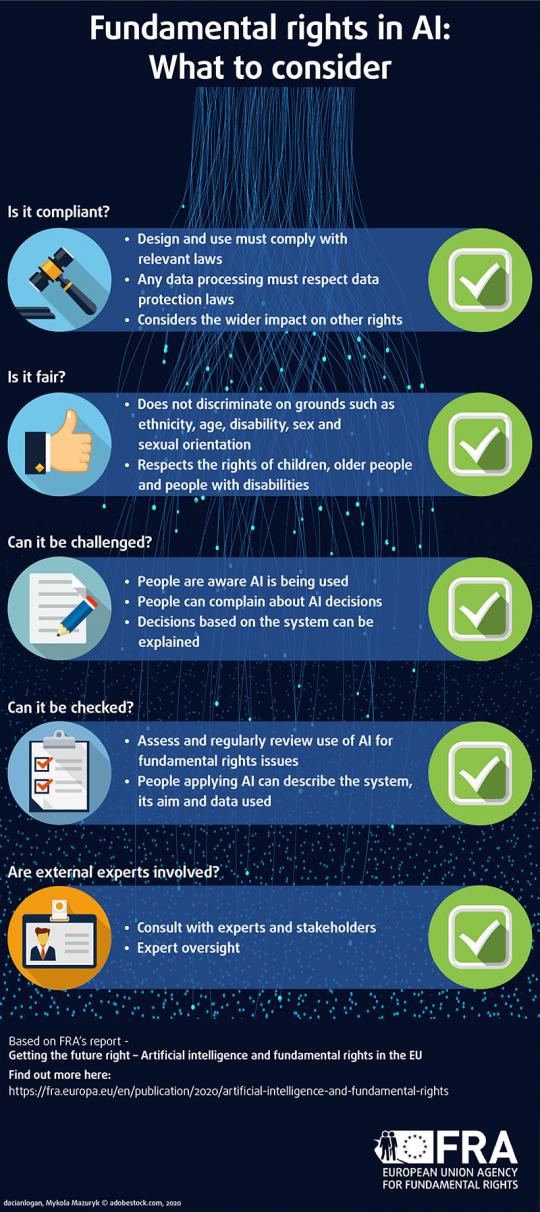Fundamental rights in AI: What to consider
Is it compliant?
- Design and use must comply with relevant laws
- Any data processing must respect data protection laws
- Considers the wider impact on other rights
Is it fair?
- Does not discriminate on grounds such as ethnicity, age, disability, sex and sexual orientation
- Respects the rights of children, older people and people with disabilities
Can it be challenged?
- People are aware AI is being used
- People can complain about AI decisions
- Decisions based on the system can be explained
Can it be checked?
- Assess and regularly review use of AI for fundamental rights issues
- People applying AI can describe the system, its aim and data used
Are external experts involved?
- Consult with experts and stakeholders
- Expert oversight
Based on FRA’s report - Getting the future right – Artificial intelligence and fundamental rights in the EU.
